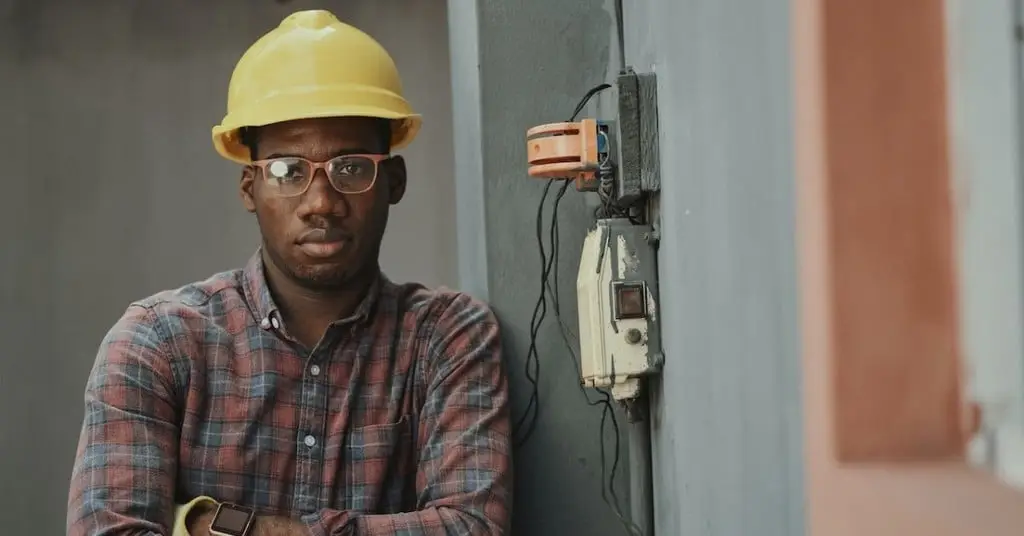In this article:
- What does a building inspector do?
- How do you become a building inspector?
- Home inspectors vs. building inspectors
Is a home inspector and a building inspector the same thing? Some titles in real estate can be confusing. While both of these professions inspect buildings, their responsibilities are different.
Building inspectors are often government employees. Their job is to sign off on construction projects and ensure that buildings are up to code.
Home inspectors examine the property to find any issues or areas of concern.
Let’s take a more in-depth look at these professions and how they can help you.
What does a building inspector do?
A building inspector’s job is to examine a building’s construction and structural integrity. Building inspectors also enforce a city or township’s building code that dictates the standards of construction requirements. In most states, building inspectors must have some licensure or certification.
What building inspectors do:
- Look for potential compliance issues based on local, state, and federal codes
- Review new construction plans
- Monitor new construction to make sure it meets the requirements
- Examine the general safety of buildings
- Issue occupancy certifications
What’s the difference between building inspectors and home inspectors?
Building inspectors often work for a city or county. They inspect residential and commercial buildings for code compliance and structural integrity. They issue an occupation certificate if the building meets the codes.
Home inspectors are not affiliated with any governmental agency. They can be independent or work for the company. Home buyers can hire home inspectors before buying a home. Sellers can also hire a home inspector before putting a property on the market.
A home inspection report provides detailed information about the condition of the property. It helps buyers to decide how to proceed with the transaction.
Do home inspectors check for code violations?
Due to the fact that many states do not require home inspectors to Many states do not require a certification or formal training for home inspectors. That’s why home inspectors are not qualified to check code violations. Home inspectors conduct a visual check to identify obvious problems. But a home inspector has no authority to issue fines for code violations. They also can’t check things beyond their authorized work scope.
When does a building inspection happen?
tones. To start a new project, you must apply for building permits at your local building department. A building inspector will sign you off on your initial plans.
A building inspector checks if a structure meets local codes. They may notify you of any infractions, so you can make changes. In more severe cases, inspectors issue fines to prevent further construction. These fines cost anywhere from a few hundred to thousands of dollars.
If you add to your home, inspections work similarly but are sometimes arranged through your hired builder or home renovator. For example, some pool installers handle permit filing and inspections.
How do you become a building inspector?
A high school diploma or its equivalent is enough to start in this profession. Building inspectors have an advantage when they have a degree or certification. Some employers prefer a degree in engineering, architecture, or building inspection technology.
Building inspectors have extensive on-the-job training and must know municipal and state codes and zoning regulations. Learning these things can require specialized training.
What is a building inspector’s salary?
The median annual salary for construction and building inspectors was $61,640 in May 2021. A projected 14,800 openings for building inspectors will be added each year over the next decade making it a higher-demand position.
Do I need a building inspector certification?
The short answer is yes. You must get some form of licensure or certification to work as a building inspector. Only a handful of states do not require a building inspector to hold a license. As a building inspector, you will be hard-pressed to find any work in this field without one.
The International Code Council offers education and testing for building inspectors. Each state and local council has its own set of codes and regulations that an inspector needs to know to perform the job. The building inspector position is often available through the local or state government. Local governments enforce building codes and issue citations and fines.
Summary: Home inspectors vs. building inspectors
To start, home inspectors have no involvement with homes that are not yet built. They come in the final stages of buying a home.. Building inspectors take part in the construction process at many stages.
Professional recommendations
Home inspectors can inform their clients about issues and hazards. They do not issue citations. Home inspectors cannot prevent an individual from buying or selling a home. They can refer their clients to specialized professionals.
Building inspectors must find and report any safety violations and issue fines. A contractor with a history of citations and penalties can lose their permits.
Necessity
Another factor that sets these two apart is necessity.
Home inspections are not required by law. A home inspector can save buyers thousands of dollars in unforeseen repairs. Buyers use a home inspection report to negotiate the price.
Building inspections are required by law at many points in the construction process. They inspect commercial and residential projects and the surrounding sidewalks and power lanes.
Different clients
Home inspectors work independently or for home inspection companies. Building inspectors often work for the government.
A buyer or seller can hire a home inspector to examine the property.

